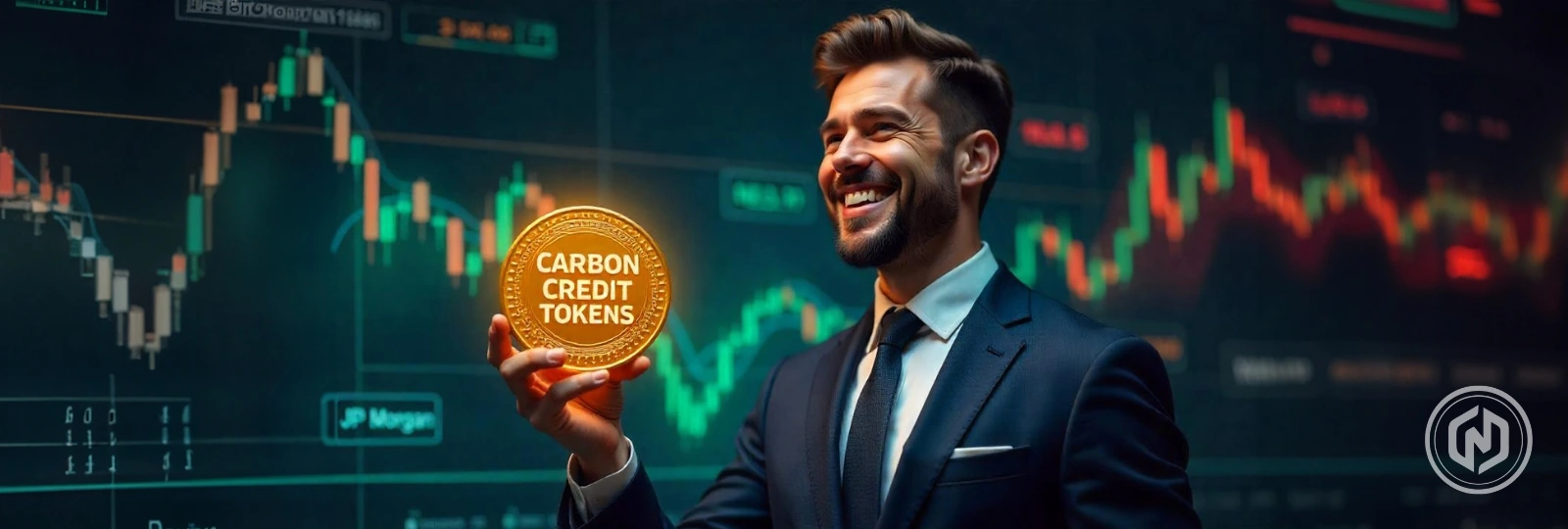JPMorgan Chase, through its blockchain division Kinexys, has started a pilot project to tokenize carbon credits. The initiative aims to bring transparency, traceability, and efficiency to a market long hampered by manual processes and inconsistent standards.
During its disclosure on July 2, the pilot will entail working in collaboration with S&P Global Commodity Insights, EcoRegistry, and the International Carbon Registry (ICR). Together, they will test a blockchain-based system designed to digitize carbon credits, which represent verified reductions of one metric ton of CO₂ emissions.
Kinexys’ Blockchain Strategy Tackles Market Integrity
Kinexys methodology leverages smart contracts on creating an audit trail on every tokenized credit which is secure and reflects it could not be tampered. These tokens also have metadata like type of project, vintage and location. When they are claimed, they are immediately thrown out of the circulation and untransferrable to eliminate chances of counterfeits and double spending.
Conventional carbon registries have been dealing with transparency. Kinexys coveted the blockchain overlay that provides a solid source of reality, a combination of ICR and EcoRegistry validation, and calls on-chain records. This may address such grave problems as fraud, duplication, and incompatibility of records, which have been a bane of the existing voluntary carbon markets.
The platform allows real-time tracking and programmable transactions, potentially making credit trading more liquid and scalable. If successful, the pilot may help eliminate long-standing trust gaps in the sector.
Kinexys’ Pilot Expands JPMorgan’s ESG Ambitions
The development sees JPMorgan engaging in carbon credit tokenization after engaging in real-world assets (RWAs). In May Kinexys made a cross-chain settlement with tokenized U.S. Treasuries leading to a demonstration that its infrastructure could process multi-faceted institutional-grade assets across blockchains.
This carbon-focused pilot deepens JPMorgan’s climate finance footprint. Just weeks earlier, the bank signed a long-term agreement with Canadian carbon capture firm CO₂80. The 13-year agreement guarantees 450,000 metric tons of carbon removal, reflecting an increased focus by JPMorgan on investing in climate.
The company evidently is moving to sustainable finance products. Glass says that JPMorgan ultimately would be able to offer biodiversity or water-use credits through a tokenized system that form part of an overall ESG portfolio.
Kinexys’ Vision for Transparent Carbon Markets
The involvement of S&P Global in the trial provides market intelligence to the market and may assist in on-chain price feeds in the future. Commentators propose that tokenized carbon credits are one way that can potentially be used as composable collateral within decentralized financial (DeFi) systems.
This move marks a significant shift. While traditional markets have struggled with opaque records and fragmented systems, Kinexys’ blockchain model offers accountability and seamless integration with sustainability goals.
With increased demand for credible ESG tools, JPMorgan positions itself as a Kinexys appears to be in a position to influence how institutions approach carbon markets. In case the pilot is a success, it could become an industry leader in terms of transparency, efficiency, and trust.


